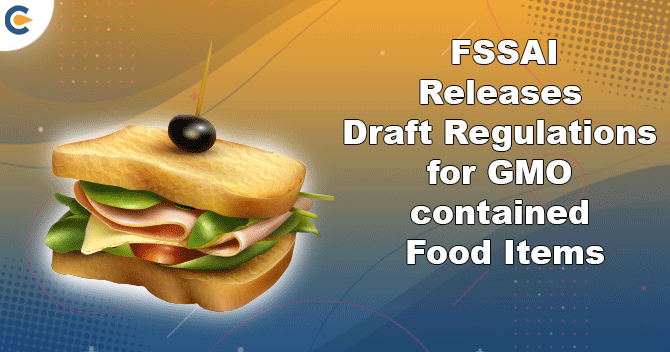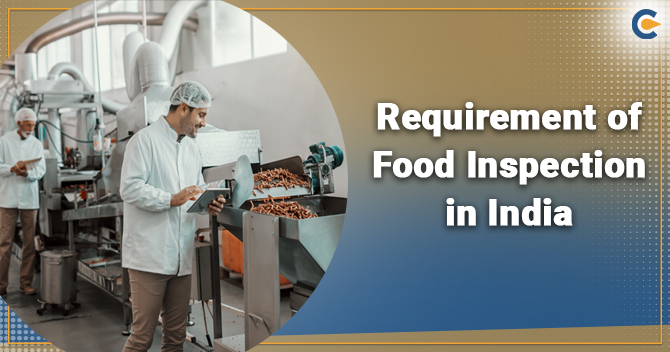Given the persisting vagueness around the regulations of genetically modified foods, the FSSAI has rolled out draft regulations clarifying that no one can produce or trade any food articles or food ingredients derived from genetically modified organisms (aka GMOs) without prior consent.
The draft has been rolled out to seek stakeholder views and the post-inter-ministerial consultation process. The draft regulations enclose the procedure for prior consent and safety assessment, and labelling norms. It also contains provisions that food testing labs will need to follow for examining GM foods.
What are GM foods?
As per the WHO’s definition, Foods that have been manufactured via genetically modified organisms are regarded as GM foods.
The genetic modification artificially modifies the DNA structures of the food items and claims to have better nutritional value over conventional food articles.
This is not naturally occurring and is performed using genetic engineering technology.
GM foods can also include ready-to-eat snacks, crops like soy, mustard, oils, cotton, potato, rapeseed etc.
An Overview of Proposed Regulations Released by FSSAI
- The proposed regulations will encompass the Genetically Engineered Organisms (GEOs) or Genetically Modified Organisms (GMOs), or Living Modified Organism (LMOs) intended for direct use or food article or processing.
- The regulations will encompass food articles that may have been produced using food ingredients or processing aid derived from a genetically modified organism, even if GM does not exist in the final products.
- The food regulator FSSAI has clarified that GMOs or GEOs shall not be utilized as an ingredient in infant food articles.
- No individual shall produce, store, trade, or import in the nation any food article or food ingredient, as the case may be, extracted from GMOs except with the prior approval of the concerned authority,
- The provisions under the said regulation are in addition to, & not in the exemption, of any other provisions cited under the Act
Labelling norms for GMO Contained Food items
- The draft also sets out labelling provisions for food articles that constitute 1 per cent or more than one per cent of GMO content.
- All food articles containing Genetically Engineered ingredients 1 per cent or more shall be labelled as the following;
Contains GMO/Ingredients derived from GMO,”
- Industry experts claimed that the regulations, once finalized, will ensure clarity regarding regulatory status, particularly in the case of food articles coming from other countries.
- In a bid to ensure that only GM-free crops are shipped into the nations, the concerned authority had last year said that the importation of 24 crops would be required to be accompanied with GM-free, Non-GM certificate from January 1.
- But, after coming across some representation from concerned stakeholders, it was postponed, and these regulations came to effect from March 1. The regulations were underpinned since the food regulator was in the process of finalizing the regulations.
Facts regarding GM food in India
- India is among the top 5 nations producing the most genetically modified foods in terms of crop area after the US, Brazil, Argentina, and Canada. As per the 2018 study rolled out by the Centre for Science & Environment (CSE), 21 out of 65 food articles tested from Gujarat, Punjab, and Delhi were found GM positive. Out of these food samples, 16 were imported from Canada, UAE, Thailand, US, and Netherland.
- Approx fifty per cent of overseas food articles that contained popcorns, breakfast cereals, corn snacks, corn syrup, sweet corn & soy tofu tested GM positive. But, no packaged food items produced in India were found to have GM traces. No GM declaration was found on the product labels.
- Genetically modified crops like GM-Mustard, BT Brinjal, and Protato are also produced in our country. But, the initiative to BT brinjal to the masses was blocked in 2010. GM Mustard has not received a green signal from the concerned authorities as the approval is still in the pipeline.
- Moreover, the protato (protein-rich potato) is yet to receive approval for consumption any day. If permitted, GM food items will quickly become part of our diet, just like GM tomatoes.
- As per the WHO[1], GM food articles have genes that have been altered and artificially inoculated. Thus, there are various health-related concerns around it. If proper risk assessment is not performed for such food articles before releasing them to the masses, it can cause allergies, toxicity, nutritional disbalance, etc. But, the producers and entities dealing with such foods claim that they are 100% safe and even offer better nutritional value than non-GM foods.
Conclusion
There is a rising concern among Indian customers regarding the credibility of infant food articles being purchased by them. Since they are not assured whether the given food article is completely GM-free, this may build more confusion and mistrust over time. FSSAI has taken the right measure in this direction by releasing the regulations above.
Read our Article:FSSAI Restrain Licensing Authorities from Demanding Immaterial Documents from FBOs













